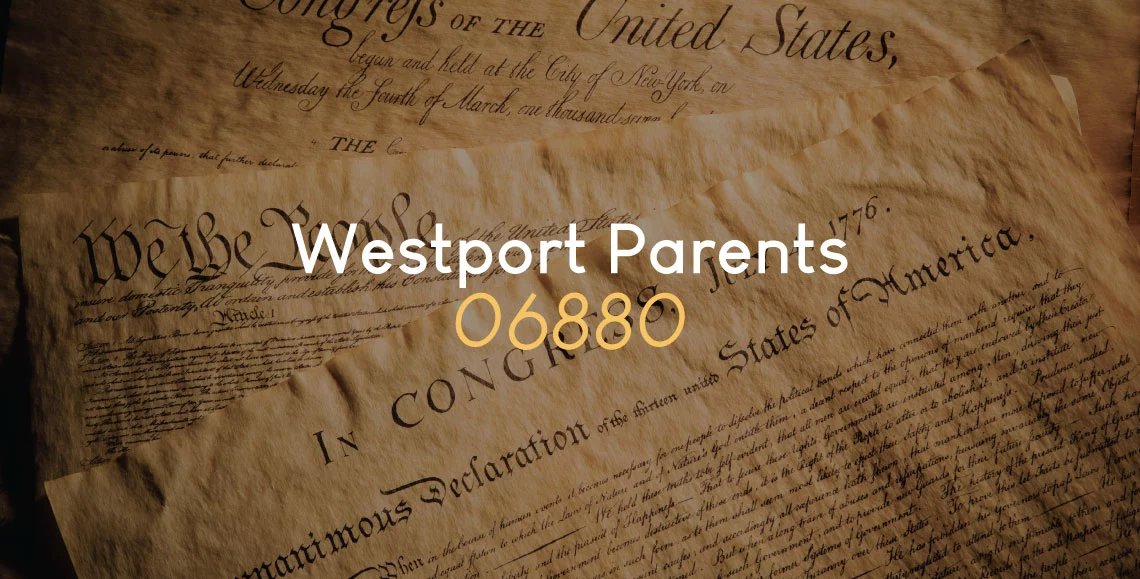TEAM hurls accusations but won’t address its ideological agenda
W e appreciate Mr. Bailey’s response to our concerns, although he put forth a series of misrepresentations about our statement in order to distract the community from and avoid confronting the most important point we are making. There was absolutely nothing in our statement to suggest we sought to stop any child in Westport from expressing his or her point of view on any topic. We are passionate supporters of first amendment rights and free expression. It is misleading for Mr. Bailey to suggest that all criticism against his group is anonymous, as many individuals in town have been outspoken on areas of disagreement, and many others have lent their names to the ideas we have presented by sending emails to elected officials and making supportive statements on social media. We did not at all criticize the basic premise of an essay contest on racial themes, and we explicitly lent support to the idea of a town body that celebrated diversity.
There is of course nothing wrong with or unconstitutional about any American sharing his or her experiences or opinions on racial topics. Rather, our statement was narrowly focused on the chosen essay topic because of its ideological slant. This year’s essay contest steers students to accept and lend support to a particular political ideology with regard to racial matters, namely “antiracism.” As we explained with reference to Ibram X. Kendi, antiracism is a philosophy that calls for the proactive use of racially conscious discrimination by government to remedy perceived inequities in the distribution of goods and services along racial lines. We view this philosophy of antiracism as fundamentally unconstitutional or perhaps, more precisely, “anti-constitutional.”
Antiracism (which actually now has its own page on our Town’s website) is the guiding philosophy of the “equity” movement to which our Town government now appears to be fully committed, thanks in no small part to TEAM’s pressure/coercion on this subject. With the forthcoming equity study recommendations, it is possible that antiracism will become the guiding philosophy of our schools.
Thus, it is urgent that our community take a very hard look at what antiracism is really all about. Recent examples of antiracism in action include policies enacted by hospital systems in various states to prioritize non-white patients in the delivery of life-saving COVID treatments. These policies, which are flagrantly unconstitutional and will likely be defeated in the courts, lack any basis in medical science. They are instead driven by the politics of “equity” that has ascended just in the past few years, in Westport and across the country.
Antiracism is, by design, difficult to criticize. Any religion or belief system that vilifies those who disagree with it should be inherently suspect, but antiracism takes it to a new level by defining itself in negative terms. For isn’t an anti-antiracist a racist? While our anonymous approach appears to be infuriating to many (“how can we destroy them personally for disagreeing with us if we don’t know who they are?”), it is necessary for that very reason for us to have this philosophical debate. TEAM has already personally attacked residents of this town by pushing for the official censure of someone who was willing to challenge their ideas and actions.
We are anti-antiracists, but we are not racists. We object to antiracism for many of the same reasons African-American intellectuals from John McWhorter to Ian Rowe to Glenn Loury object to it. We object to antiracism and the resulting politics of equity because we believe they promote an unconstitutional and illegitimate public purpose: the creation of laws and policies designed to achieve an “equitable” distribution of goods and services along arbitrarily defined racial categories. “To each according to his membership within a government defined racial identity category” cannot become the 21st century interpretation of “all men are created equal.”
We continue to believe this year’s essay contest topic tends to promote an ideology, in violation of Westport Board of Education policy, which means Westport schools must not participate in any way with this essay contest. The ideology being promoted is antiracism. A possible solution to this problem would be to reword the essay contest in a way that is ideologically neutral. We propose the following language:
In 1,000 words or fewer describe the challenges people in your community face speaking about race, including the risk of harsh accusations if their views do not conform to certain expectations. Should instances of systemic racism be addressed through the implementation of more systemic racism? What are the advantages and pitfalls of abandoning the colorblind approach to issues that we have relied upon since the Civil Rights movement?
